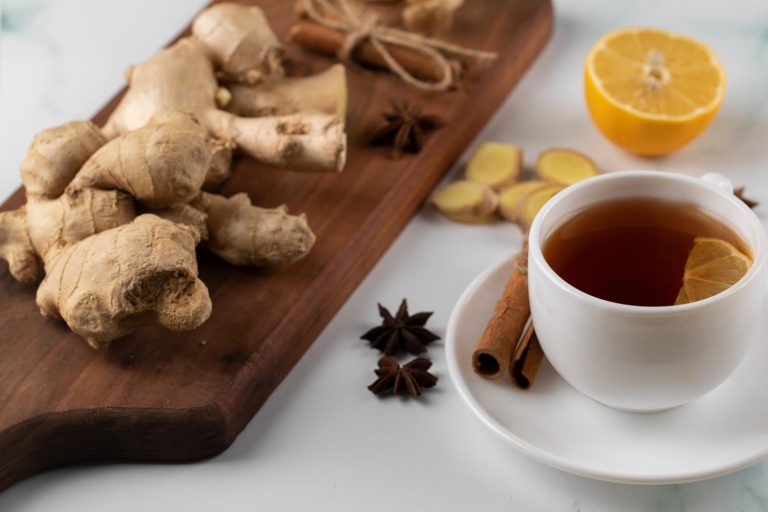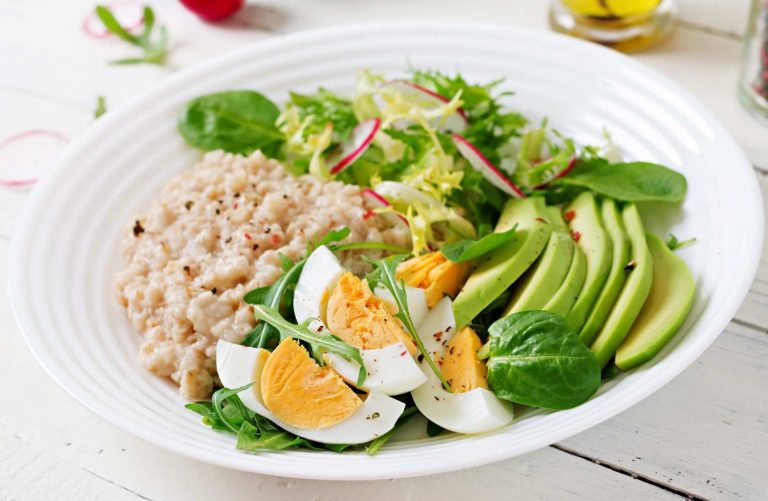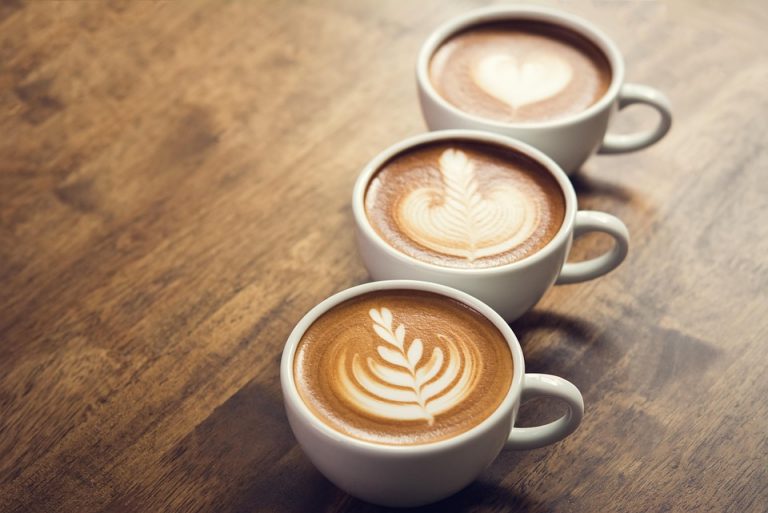Did you know that sipping a warm cup of tea can do more than just soothe your soul? In fact, certain teas can aid in weight management, particularly when it comes to that stubborn belly fat. As someone who’s always on the lookout for tasty ways to stay healthy, I’ve found that incorporating the right teas into my routine can make a noticeable difference. Let’s dive into ten delicious teas that might just help you melt away belly fat.
Contents
1. Green Tea
Why It Works: Green tea is often hailed as a miracle drink for weight loss, and for good reason. It’s rich in antioxidants known as catechins, particularly epigallocatechin gallate (EGCG), which can boost metabolism and increase fat oxidation (Hursel et al., 2011).
How to Enjoy: Brew a cup of loose-leaf green tea or use a quality tea bag. You can sip it plain, or add a slice of lemon for extra flavor and vitamin C.
Caveats: While green tea is generally safe, some people may experience stomach upset or insomnia due to its caffeine content. If you’re sensitive to caffeine, consider a decaffeinated version.
2. Oolong Tea
Why It Works: Oolong tea, a traditional Chinese tea, has been shown to improve fat metabolism. A study found that oolong tea can enhance weight loss and help maintain body weight (Huang et al., 2014).
How to Enjoy: Steep oolong tea leaves in hot water for about 5 minutes. It has a unique floral flavor that pairs well with a touch of honey.
Caveats: It’s lower in caffeine than coffee but still contains some, so be cautious if you’re avoiding stimulants.
3. Peppermint Tea
Why It Works: While peppermint tea may not directly target belly fat, it can aid digestion and reduce bloating. A happy gut is often a flatter belly!
How to Enjoy: Brew peppermint tea from fresh leaves or tea bags. It’s refreshing and can be enjoyed hot or iced.
Caveats: Peppermint tea may exacerbate acid reflux symptoms in some individuals, so listen to your body.
4. Ginger Tea
Why It Works: Ginger has long been praised for its anti-inflammatory properties. It can also help in reducing hunger and boosting metabolism, making it a great ally in your weight loss journey (Khan et al., 2016).
How to Enjoy: Slice fresh ginger and steep it in boiling water for about 10 minutes. Add a bit of honey or lemon for sweetness and zest.
Caveats: Ginger can be quite potent. If you’re new to it, start with a small amount to see how your body reacts.
5. Rooibos Tea
Why It Works: This caffeine-free herbal tea from South Africa is rich in antioxidants and flavonoids, which can help reduce stress hormones linked to fat storage (Hoffman et al., 2014).
How to Enjoy: Brew rooibos tea for about 5 minutes and enjoy it plain or with a splash of milk.
Caveats: Rooibos is generally safe, but if you’re taking medications, consult your doctor, as it may interact with some drugs.
6. Hibiscus Tea
Why It Works: Hibiscus tea is not only beautiful but also effective. Studies suggest that hibiscus may reduce body fat and lower blood pressure (Bao et al., 2013).
How to Enjoy: Steep dried hibiscus flowers in hot water for about 10 minutes. It’s naturally tart and can be sweetened with honey.
Caveats: While generally safe, hibiscus can lower blood pressure, so those on antihypertensive medications should consult a healthcare provider.
7. Dandelion Tea
Why It Works: Dandelion may not be the first herb that comes to mind, but it’s a natural diuretic, helping to reduce water weight and bloating. Plus, it aids digestion and liver health.
How to Enjoy: Brew dandelion root tea for a robust flavor, or try dandelion leaf tea for a milder taste.
Caveats: Some people may experience allergic reactions or digestive issues, so start with small amounts.
8. White Tea
Why It Works: White tea is the least processed of all teas and is rich in catechins, similar to green tea. It may help inhibit the formation of new fat cells (Zhang et al., 2010).
How to Enjoy: Brew white tea leaves in water below boiling point (around 175°F) for about 5 minutes. It has a delicate, subtle flavor.
Caveats: It has a lower caffeine content, but still, be mindful if you’re sensitive to caffeine.
9. Chamomile Tea
Why It Works: Chamomile is known for its calming effects, which can help reduce stress. Since stress can lead to weight gain, especially around the belly, chamomile may indirectly support weight loss.
How to Enjoy: Brew chamomile flowers in hot water for about 5 minutes. It’s perfect for winding down before bedtime.
Caveats: Chamomile can cause allergic reactions in some individuals, especially those allergic to plants in the daisy family.
10. Matcha Tea
Why It Works: Matcha is a concentrated form of green tea, loaded with antioxidants. It’s been shown to boost metabolism and promote fat burning (Hursel et al., 2011).
How to Enjoy: Whisk matcha powder into hot water for a frothy drink. You can also add it to smoothies or baked goods for a health boost.
Caveats: Because matcha is potent, it’s best to consume it in moderation to avoid caffeine-related side effects.
FAQs
1. Can tea alone help me lose belly fat?
No single tea will melt away belly fat by itself. However, incorporating these teas into a balanced diet and exercise plan can support weight loss.
2. How much tea should I drink daily?
Aim for 2-3 cups of your chosen tea daily. Listen to your body and adjust based on your caffeine tolerance and preferences.
3. Can I sweeten my tea?
Absolutely! Just be mindful of how much sugar or sweetener you add. Natural options like honey or stevia can be great alternatives.
4. Are there any side effects from drinking these teas?
Some teas can cause digestive issues or allergic reactions in sensitive individuals. It’s best to start with small amounts and consult a healthcare provider if you have any concerns.
Conclusion
Incorporating these teas into your daily routine can be a delightful way to support your weight loss journey, especially when targeting that pesky belly fat. Remember, though, that no tea will do the heavy lifting on its own. Pairing these brews with a balanced diet and regular exercise is the key to seeing results.
So, brew a cup of your favorite tea, take a moment to savor it, and enjoy the journey toward a healthier you. And let’s be real—who doesn’t love a delicious excuse to take a break?
Disclaimer: This article is for educational purposes only and is not a substitute for professional medical advice. Always consult a qualified healthcare provider before making changes to your health routine.
References
-
Bao, Y., et al. (2013). Hibiscus sabdariffa L. extract reduces body fat and blood pressure in humans. Journal of Nutrition, 143(5), 703-708. https://doi.org/10.3945/jn.112.167630
-
Hoffman, R. M., et al. (2014). The effects of Rooibos tea on health: A review. Journal of Ethnopharmacology, 154(1), 1-10. https://doi.org/10.1016/j.jep.2014.02.044
-
Hursel, R., et al. (2011). The effects of green tea on weight loss and weight maintenance: a meta-analysis. International Journal of Obesity, 35(5), 710-720. https://doi.org/10.1038/ijo.2010.171
-
Khan, M. A., et al. (2016). The effect of ginger on weight loss: a systematic review. Phytotherapy Research, 30(5), 820-826. https://doi.org/10.1002/ptr.5583
-
Zhang, Y., et al. (2010). White tea extract inhibits adipogenesis in 3T3-L1 adipocytes. Journal of Nutrition, 140(5), 800-805. https://doi.org/10.3945/jn.109.113906
Get Your FREE Natural Health Guide!
Subscribe now and receive our exclusive ebook packed with natural health tips, practical wellness advice, and easy lifestyle changes, delivered straight to your inbox.





